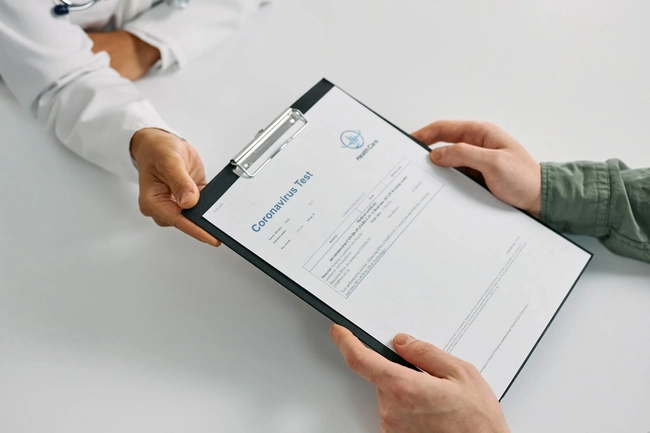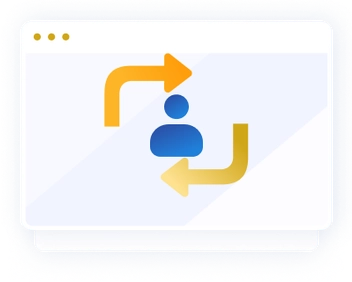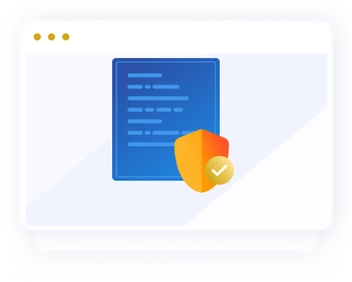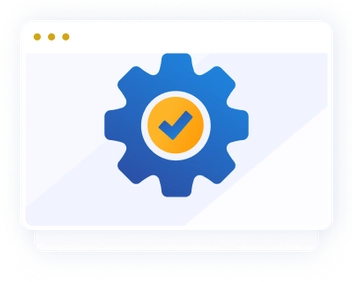Legal Tech Software Development Services
Streamline legal workflows with innovative tech.
Develop innovative legal tech solutions that streamline workflows and enhance productivity.
Our Legal Tech Software Development Services

Legal Tech Web Apps
We develop advanced legal tech web applications, optimized for case management, document automation, and streamlined legal processes.

Legal Tech Mobile Apps
Our mobile app solutions for legal tech ensure seamless access to legal resources, client communication, and case tracking on the go.

Product Design
We focus on creating user-friendly and efficient product designs, enhancing usability and engagement in legal tech applications.

Custom Legal Tech Software
Tailored to your specific legal operational needs, our custom legal tech software solutions are designed to improve efficiency and client service.

Software Outsourcing
Our software outsourcing services provide access to specialized legal tech development skills, helping you accelerate innovation in legal services.

Software Maintenance
We offer comprehensive software maintenance, ensuring your legal tech applications remain secure, up-to-date, and effective in a rapidly evolving legal landscape.

Our Legal Tech Software Development Work

Digitizing the Divorce Process

Innovating Transit for Faster, Convenient Commutes
Our Approach to Legal Tech Software















Our Process for Legal Tech Projects

01
Scoping
We have detailed discussions to understand your requirements, objectives, and challenges.
02
Proposal
We provide you with a proposal that outlines scope, timelines, required resources, and costs.
03
Contract
A contract formalizes our relationship and commitment to delivering the agreed-upon services.
04
Execution
We kick off the project by dedicating our resources to design and implement the software solution.Types of Legal Tech Apps we Create

Case Management Systems
Develop systems for managing legal cases.

Legal Research Tools
Create tools for conducting legal research.

Document Management Solutions
Build solutions for managing legal documents.

E-Discovery Tools
Develop tools for electronic discovery processes.

Contract Management
Create solutions for managing legal contracts.

Legal Analytics
Build analytics tools for legal data.

Compliance Solutions
Develop compliance solutions for legal practices.

Legal Workflow Automation
Create tools for automating legal workflows.

Custom Legal Tech Solutions
Build custom technology solutions for legal practices.

Legal Billing Systems
Develop systems for managing legal billing.
Our Legal Tech Technologies

Ruby on Rails
Develop robust legal tech applications with Ruby on Rails.
Node.js
Create fast and efficient legal tech solutions with Node.js.
React.js
Build dynamic user interfaces for legal tech with React.
React Native
Develop cross-platform mobile legal tech apps with React Native.
Flutter
Create high-performance mobile legal tech apps with Flutter.
Salesforce
Integrate with Salesforce for custom CRM solutions.
AWS
Utilize AWS for secure and scalable hosting solutions.Benefits of Custom Legal Tech Software
Our team of web and mobile app developers is ready to take on your custom legal tech software project.

Enhanced Efficiency
Streamline legal processes and case management with custom software, leading to increased productivity and time savings.
Improved Client Service
Enable better client communication and case tracking, improving client satisfaction and engagement.
Accessibility and Mobility
Mobile applications provide lawyers and clients with the convenience of accessing information and services anytime, anywhere.
Customization to Fit Needs
Tailored software solutions address the unique challenges and requirements of your legal practice or business.
Data Security and Compliance
Rigorous security measures ensure the protection of sensitive legal data and compliance with industry regulations.
Ongoing Support and Upgrades
Regular updates and maintenance keep your legal tech software current, secure, and functioning optimally in a rapidly changing legal environment.Why Choose Flatirons for Legal Tech Development?

Expert Legal Tech Developers

Customized Solutions

Data Security and Compliance

Proven Track Record

End-to-End Development Services

Cutting-Edge Technology

Client-Centric Approach

Reliable Support and Maintenance
Don't just take our word for it.

Flatiron's work optimized site design and flow. The creative lead at Flatirons demonstrated exceptional UX know-how, integrating usability and design to deliver a powerful product. The client came out of the engagement with a wider understanding of the most important platform features.
Heidi Hildebrandt
Director of Product

Our company is growing, and as we started looking to scale, we wanted a more efficient business model. We hired Flatirons Development to build a platform that would help connect talent with the right company.
Brian Bar
Founder and CEO

With the help of Flatirons Development, we were able to launch a large update to our platform, introducing new innovative tools for our clients. The information was complex but Flatirons found creative ways to present it, making it feel simple and easy to understand.
Jeremy Zaborowski
Co-Founder & CTO

They deconstructed our idea and provided it back to us in an incredibly smart and accessible manner. Flatirons Development is constantly solving problems in both a visually stunning and intelligent way.
Storey Jones
Founder and CEO

Flatiron's work optimized site design and flow. The creative lead at Flatirons demonstrated exceptional UX know-how, integrating usability and design to deliver a powerful product. The client came out of the engagement with a wider understanding of the most important platform features.
Heidi Hildebrandt
Director of Product

Our company is growing, and as we started looking to scale, we wanted a more efficient business model. We hired Flatirons Development to build a platform that would help connect talent with the right company.
Brian Bar
Founder and CEO

With the help of Flatirons Development, we were able to launch a large update to our platform, introducing new innovative tools for our clients. The information was complex but Flatirons found creative ways to present it, making it feel simple and easy to understand.
Jeremy Zaborowski
Co-Founder & CTO

They deconstructed our idea and provided it back to us in an incredibly smart and accessible manner. Flatirons Development is constantly solving problems in both a visually stunning and intelligent way.
Storey Jones
Founder and CEO

Flatiron's work optimized site design and flow. The creative lead at Flatirons demonstrated exceptional UX know-how, integrating usability and design to deliver a powerful product. The client came out of the engagement with a wider understanding of the most important platform features.
Heidi Hildebrandt
Director of Product

Our company is growing, and as we started looking to scale, we wanted a more efficient business model. We hired Flatirons Development to build a platform that would help connect talent with the right company.
Brian Bar
Founder and CEO

With the help of Flatirons Development, we were able to launch a large update to our platform, introducing new innovative tools for our clients. The information was complex but Flatirons found creative ways to present it, making it feel simple and easy to understand.
Jeremy Zaborowski
Co-Founder & CTO

They deconstructed our idea and provided it back to us in an incredibly smart and accessible manner. Flatirons Development is constantly solving problems in both a visually stunning and intelligent way.
Storey Jones
Founder and CEO
Legal Tech Software Development Services FAQs
We create custom web and mobile applications for legal tech businesses on time and on budget.
What kind of legal tech software do you develop?
We specialize in developing a range of legal tech software, including case management systems, document automation tools, and client communication platforms.
How can your legal tech solutions benefit my law firm?
Our solutions enhance operational efficiency, streamline case handling, improve client communication, and ensure secure data management for law firm
Are your legal tech solutions compliant with legal industry standards?
Yes, we ensure all our legal tech solutions comply with industry standards and regulations to protect sensitive data and uphold privacy.
Can your software be integrated with existing legal systems?
Absolutely, we focus on creating solutions that can seamlessly integrate with your existing legal systems for a cohesive workflow.
What is the typical development timeline for a legal tech application?
The development timeline varies based on the complexity and features of the application, but we strive for efficiency to meet your timelines.
Do you provide ongoing support and maintenance for legal tech software?
Yes, we offer comprehensive support and maintenance services to ensure your software remains up-to-date and functions effectively.





